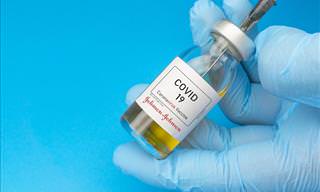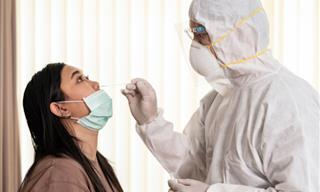The FDA recently authorized the use of the Johnson & Johnson coronavirus vaccine in adults. As the efforts for global immunization are being challenged by various logistical issues and new variants of the virus, this development could provide much-needed aid.
There is one particular advantage to the new vaccine. If you experience an allergic reaction to the Moderna or Pfizer vaccines, the CDC now says you can try Johnson & Johnson as your second dose. Read on to find out how the new vaccine compares to the existing ones and when it can be used as a substitute for another vaccine.
How does the Johnson & Johnson vaccine work?
The Johnson & Johnson vaccine is a viral vector vaccine, which is a traditional approach to vaccine production. To create this vaccine, the team took a harmless adenovirus – the viral vector – and replaced a small piece of its genetic instructions with coronavirus genes for the SARS-CoV-2 spike protein.
When injected into a person’s arm, it enters the cells. The immune system then notices these foreign proteins and makes antibodies that will protect the person if they are ever exposed to SARS-CoV-2 in the future. In that regard, the Johnson and Johnson vaccine is similar to the AstraZeneca-Oxford vaccine and the Russian Sputnik vaccine.
How does Johnson & Johnson compare to existing vaccines?
The main difference is that Johnson and Johnson is a viral vector vaccine while the Moderna and Pfizer vaccines both work using a novel method called mRNA. Messenger RNA vaccines use genetic instructions from the coronavirus to tell a person’s cells to make antibodies to the spike protein, but these don’t use another virus as a vector.
There are quite a few practical differences that stem from these different approaches:
1. Both of the existing mRNA vaccines require two shots, while Johnson & Johnson only requires one dose. This is crucial when vaccines are in short supply.
2. The Johnson & Jonson vaccine can be stored at much warmer temperatures than mRNA vaccines, which need to be shipped and stored at below-freezing temperatures. The Johnson & Johnson vaccine, on the other hand, can be stored for at least three months in a regular refrigerator, making it much easier to use and distribute.

3. As for efficacy, the Jonson & Johnson vaccine was found to be 72% effective at preventing COVID-19 and 86% effective at preventing severe cases of the disease. While there is still a chance a vaccinated person could get sick, their risk of hospitalization or death from COVID-19 would still be much lower. The FDA report also indicates that the vaccine protects from the UK and Brazil variants. As for the South African variant, researchers found the new vaccine less effective at 64% overall, but the vaccine was still 82% effective at preventing severe disease.
While Pfizer and Moderna are reported to be approximately 95% effective at preventing Covid-19, experts note that it’s difficult to directly compare the Johnson & Johnson jab to the mRNA vaccines due to the differences in how the clinical trials were designed.
The Johnson & Johnson trials were done more recently than the others, and they took into account the vaccine’s efficacy against the new variants as well.
The use of the Johnson & Johnson vaccine in people allergic to mRNA vaccines
In general, health officials recommend that you get the same vaccine twice because it's difficult to assess how effective and safe mixing two vaccines is. However, if you experience an allergic reaction to the first dose of the Moderna or Pfizer vaccine, it is still possible for you to get vaccinated against the novel coronavirus with the Johnson & Johnson (or Janssen) vaccine, according to Jessica MacNeil, MPH, an epidemiologist at the CDC’s National Center for Immunization and Respiratory Diseases. MacNeil further added that this could only be done under the supervision of a healthcare provider.
Related: Busting Myths & Misconceptions about the COVID-19 Vaccine

An immediate allergic reaction occurs within the first 4 hours after the vaccination. It is considered severe “when a person needs to be treated with epinephrine, or EpiPen, or if they must go to the hospital," states the CDC.
It’s important to note that allergic reactions after the coronavirus vaccine are rare - only 2-5 people per million vaccinated in the US have experienced anaphylaxis after getting their shot. So while these new guidelines may certainly help some, the vast majority of the population won’t need to consider them.
All things considered, having multiple vaccines against Covid-19 is important, and the authorization of the Johnson & Johnson vaccine in the US is a big step towards ending the pandemic.
Share this important information with others
 Go to BabaMail
Go to BabaMail


























